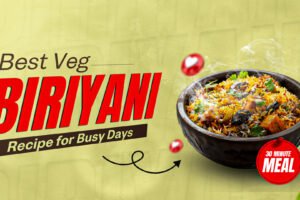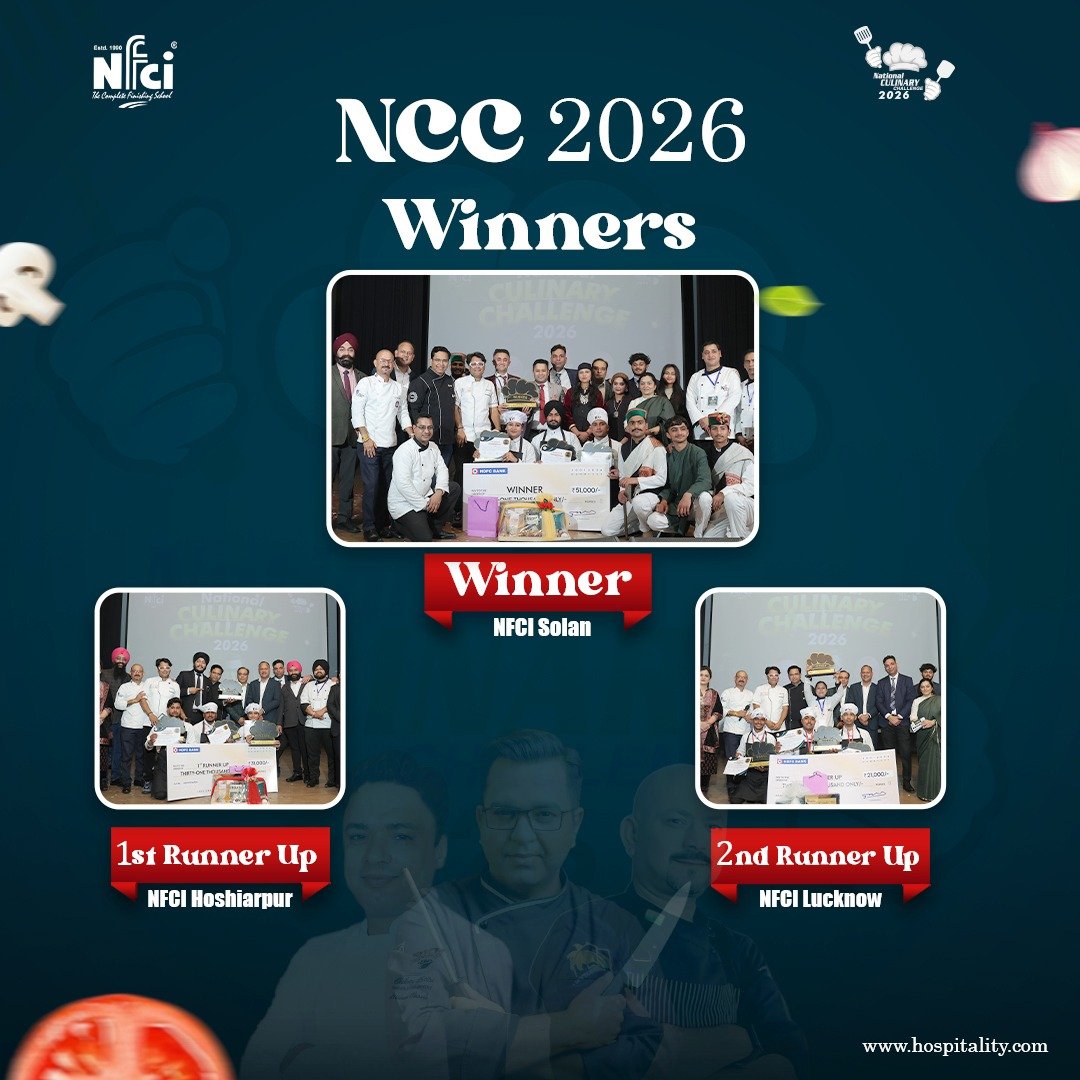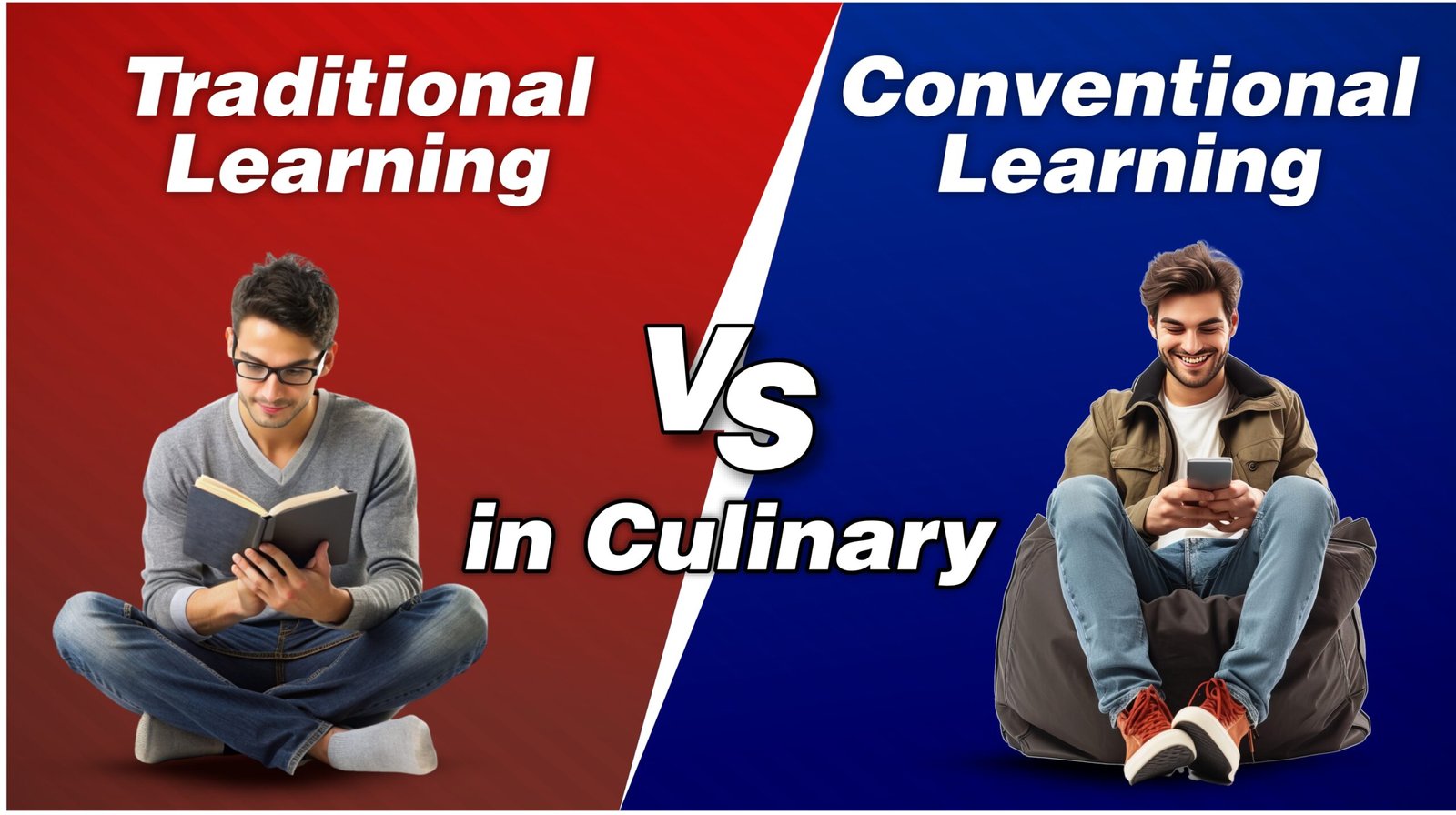
Traditional vs Conventional Learning Cooking Skill in India 2024
Learning Cooking skill is essential for living independently and healthily, making it one of the most valuable life skills. Many of us fondly remember childhood moments in the kitchen, smiling at our mothers as they made our favorite French fries or crispy potato chips.
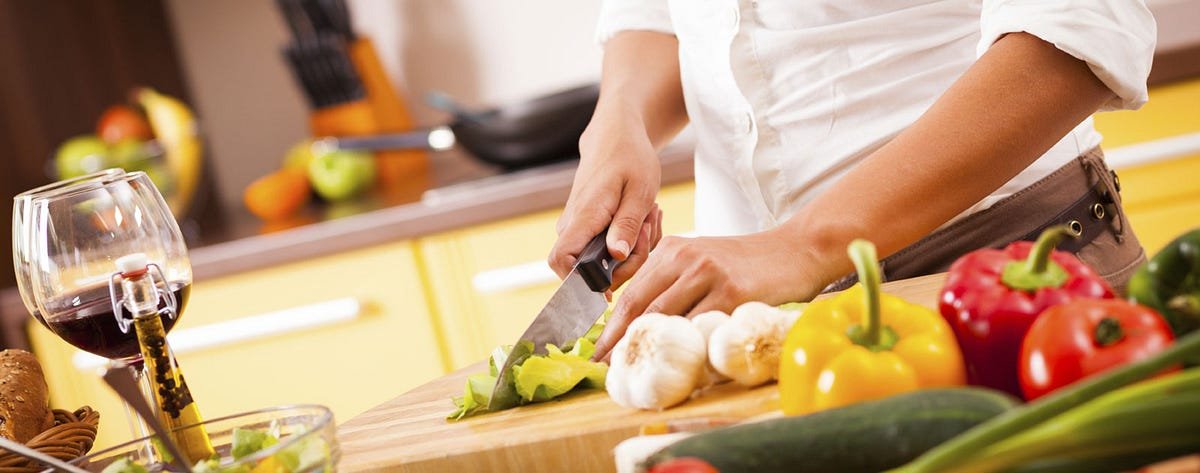
We often asked for these dishes for lunch to proudly show our friends the magic of our mother’s cooking. Over time, as the world around us changed, we turned to the internet, learning cooking skill by watching online tutorials and mukbang videos.
From making Maggi to biryani, experience or culinary education is needed to create satisfying meals. Let’s explore the traditional and conventional ways of cooking.
Check out culinary certified programs
Learning Cooking in the Traditional Way
Cooking represents love, empathy, and care for others. Our mothers often said that the love you put into cooking adds extra flavor to the food. Even if you follow the same techniques and use the same ingredients, the taste won’t be the same unless you cook with your heart.
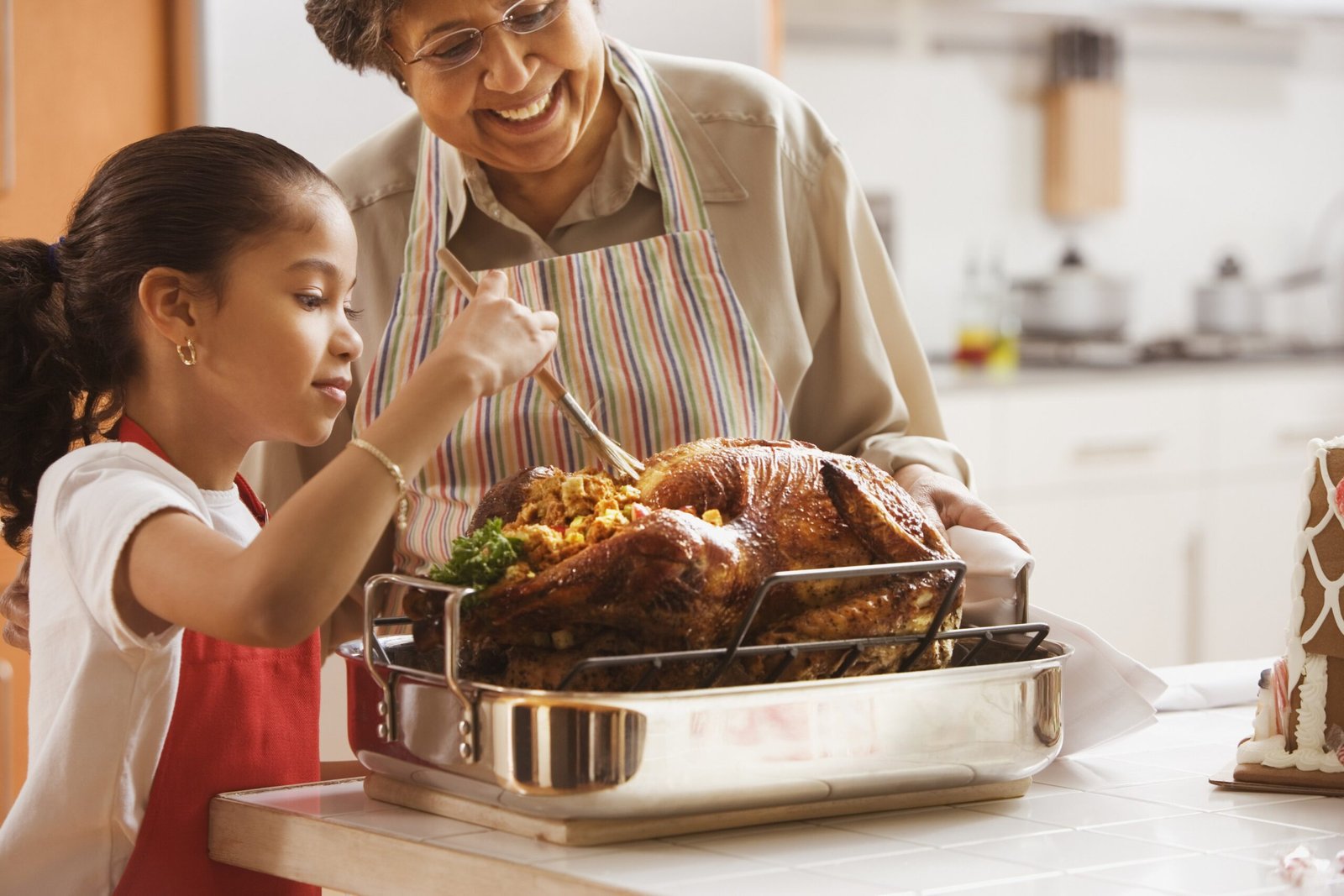
Pros of Tradition learning Cooking Skill:
- Traditional Learning Cooking (From Family): The home kitchen is our first school, where we all learn basic skills, from lowering the flame on the stove to garnishing dishes with coriander. Our mothers teach us the basic kitchen standards, which we build upon by making real dishes ourselves.
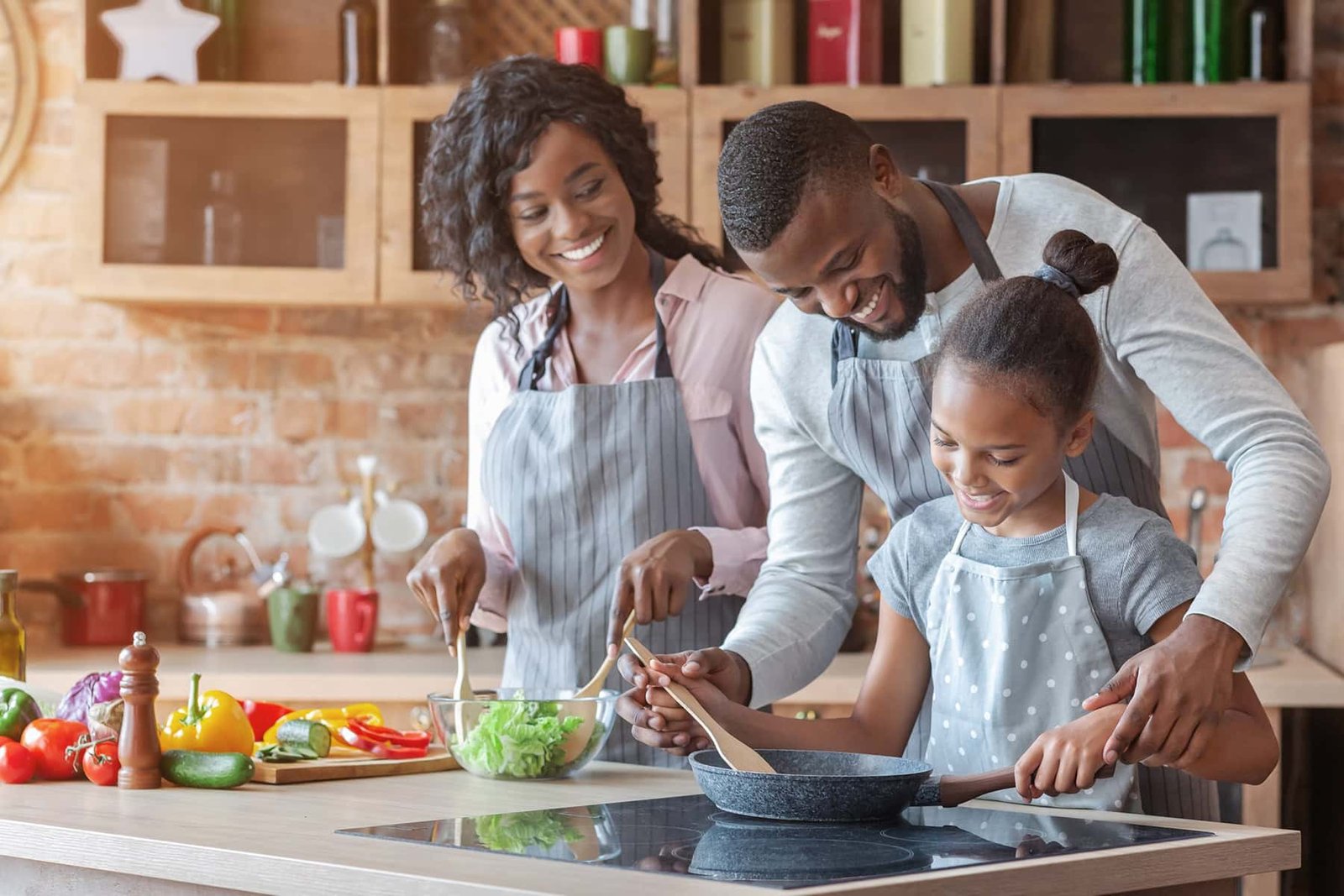
- Ancestors’ Word-of-Mouth Secret Recipes: Traditional cooking methods have a rich history and unique techniques passed down through generations. Learning cooking skill, traditionally allows us to discover gem recipes from our ancestors, along with unique techniques or ingredients that give our cooking an extra edge. This connection to our roots is significant and meaningful.
– Grilling: Provides a smoky flavor and crispy texture but can be inconsistent and produce carcinogenic compounds.
– Roasting: Offers a rich caramelized flavor and versatility but may take longer to cook.
– Frying: Results in a crispy texture and quick cooking but can be high in fat and calories and produce harmful compounds.
- Personal Bond: Cooking together fosters family bonds and creates lasting memories. In a world where everyone connects virtually, physical togetherness positively impacts mental health. Cooking and eating together nurture our minds and souls, helping us live balanced lives. A family that cooks together stays together.
Cons of Traditional Learning Cooking Skill:
– Informal: Traditional learning cooking may lack structured lessons or documentation.
– Limited Exposure: You might miss out on global cuisines or modern culinary trends.
Conventional Cooking (Non-Convection)
On the other hand, conventional cooking differs greatly from traditional methods. Nowadays, people, especially kids, learn cooking through the internet. Remember that cooking videos on Instagram or YouTube aim to gain trends and popularity. Therefore, always follow the recipes of experts or those who have professional training.

Conventional Way of Learning Cooking Skill :
Learning Cooking skill has evolved with time, with significant differences from traditional methods, such as sous vide, which cooks food to the exact level of doneness desired. Sous vide, meaning “under vacuum” in French, has been used by high-end restaurants for several years. Thanks to affordable and easy-to-use sous vide machines, the technique is now accessible to everyone.
– Heating Elements: Ovens have two stationary heating elements (top and bottom). The bottom element is ideal for roasting large cuts of meat, while the upper element works well for broiling and browning casseroles.
– No Fan Circulation: Unlike convection ovens, conventional ovens lack a fan to circulate hot air. Proper rack placement is crucial for consistent results, and dishes may need rotation during cooking.
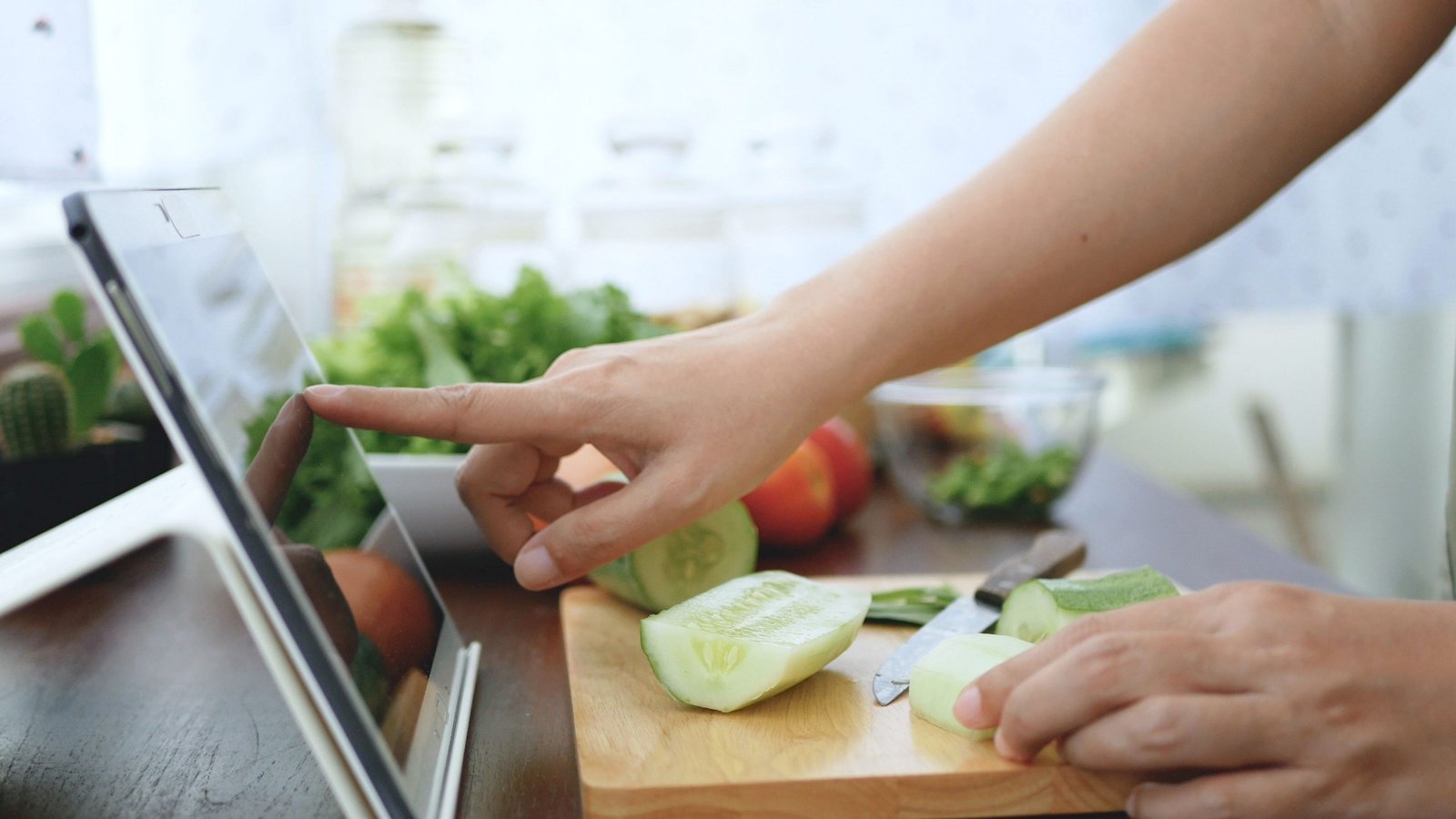
Pros of Conventional Learning Cooking Skill:
- Familiarity and versatility.
- Long-term popularity.
- No need to adjust recipe times or temperatures.
Cons of Conventional Learning Cooking Skill:
- Longer cooking times.
- Less energy-efficient.
- Higher cooking temperatures are required.
How It Works: Convection ovens have a fan and exhaust system that circulates hot air around the cavity. This reduces hot and cool spots, resulting in more even cooking, especially with multi-rack dishes. Some models include a third heating element at the back of the cavity for faster cooking.
Pros:
- Even cooking results.
- Faster cooking times.
- May eliminate the need to rotate dishes.
Cons:
- Recipe adjustments needed (times and temperatures).
- Oven calibration may be necessary.
- Initial learning cooking curve.
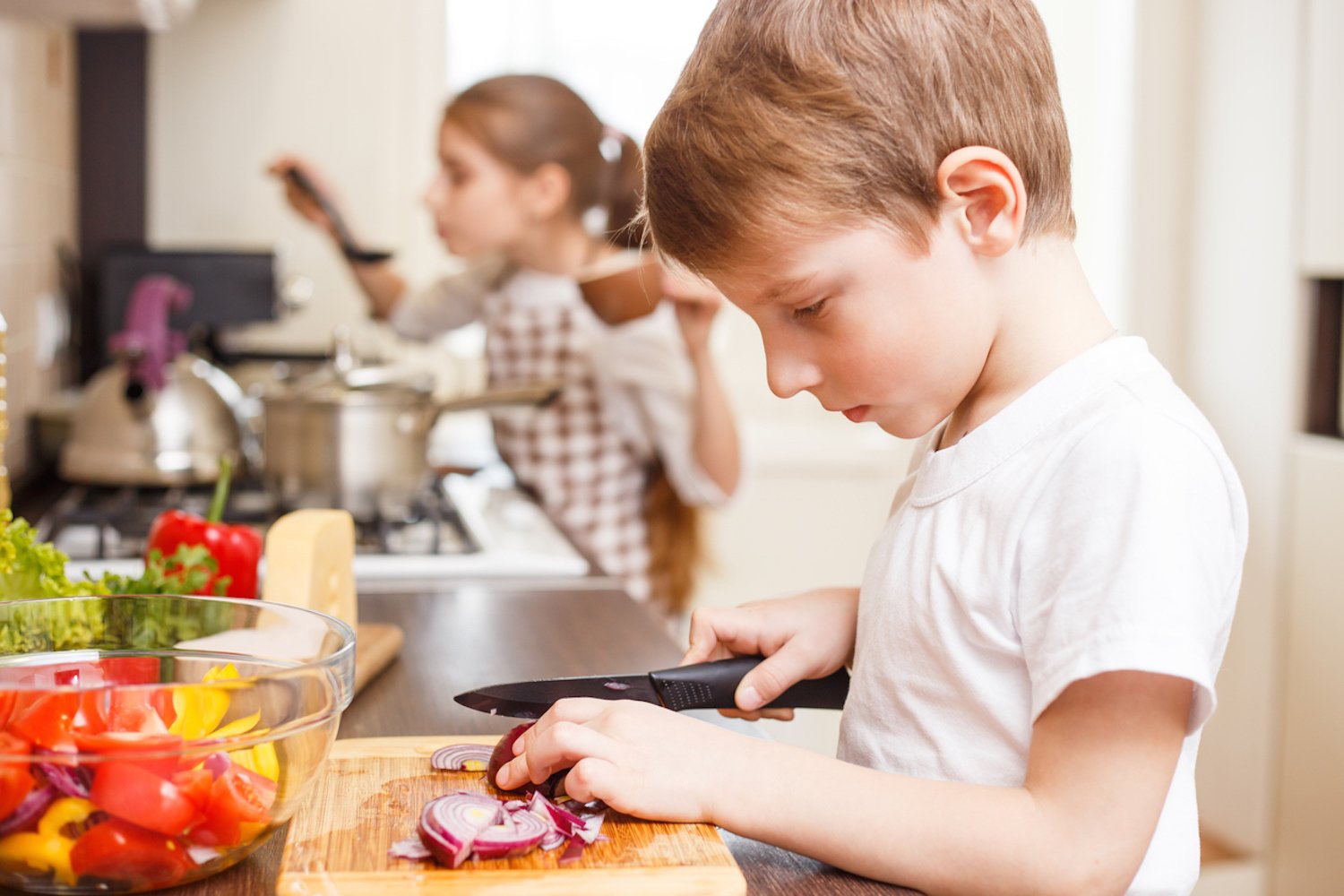
Cooking is a skill that starts at home and is an essential part of our lives. Culinary art is as important as education, especially if you are studying or working in another state. Learning cooking skill from professionals and earning a diploma or degree in culinary arts can enhance your personal and professional profile. Additionally, it benefits your health, as unhygienic and junk food can harm your child or family wellness.


